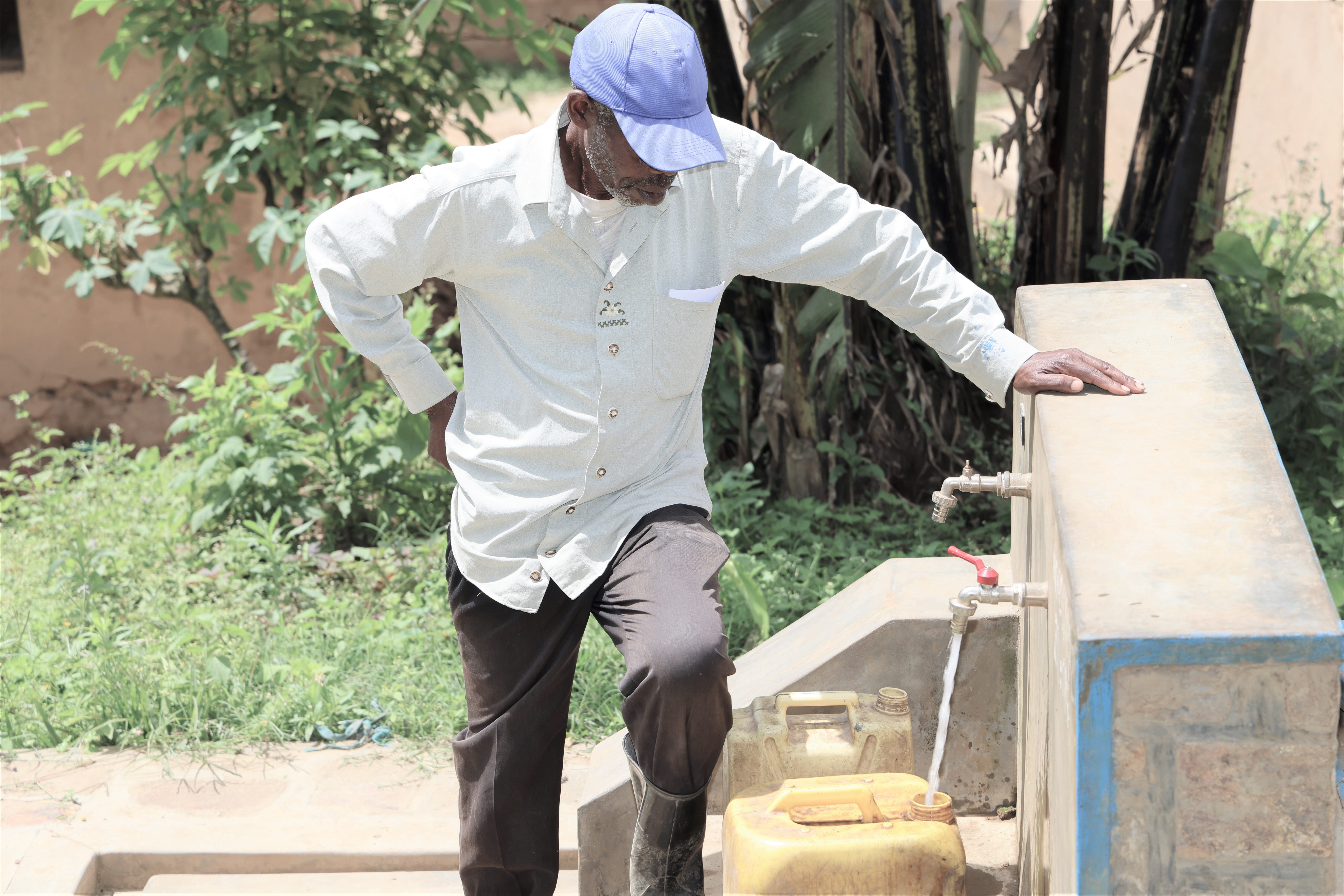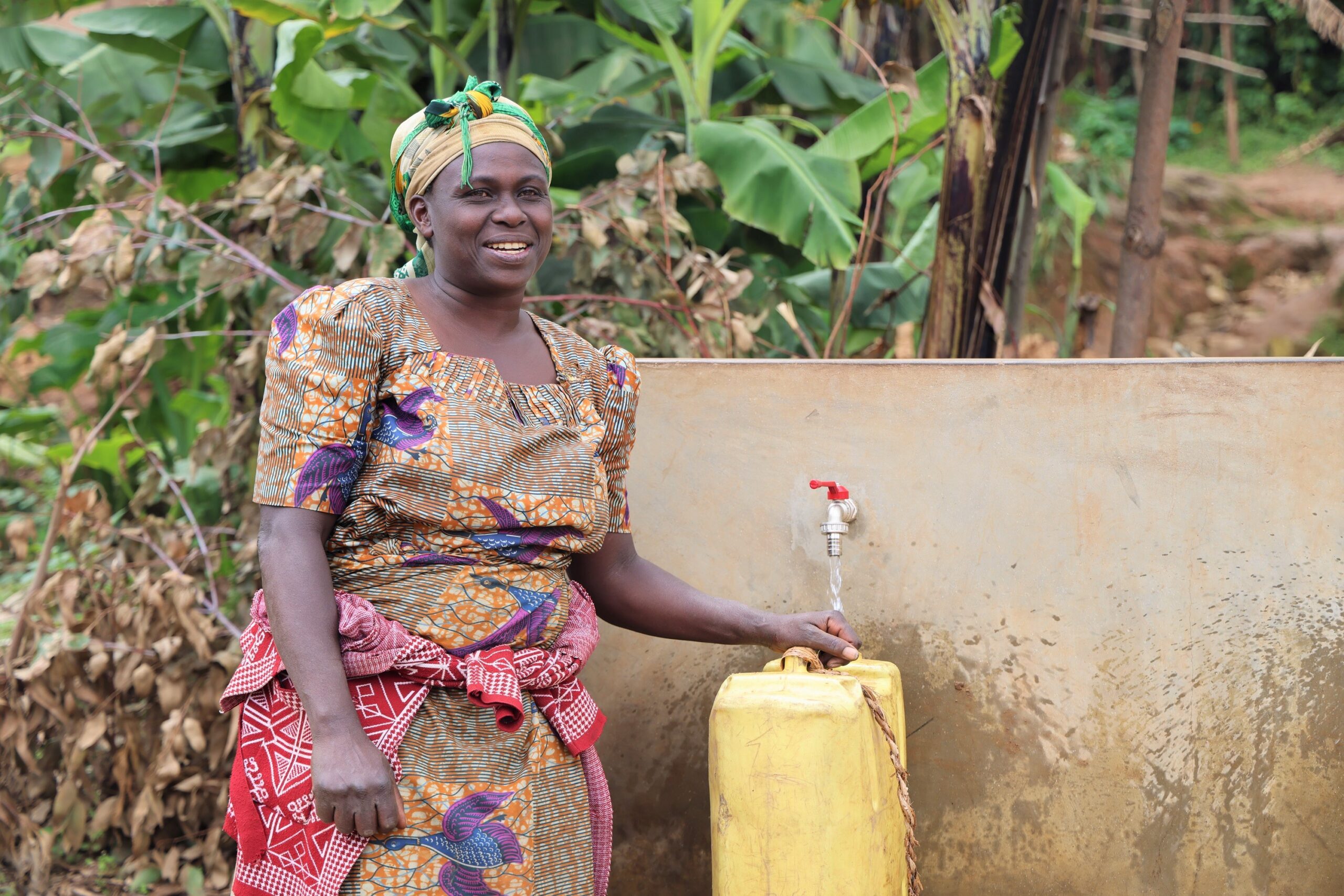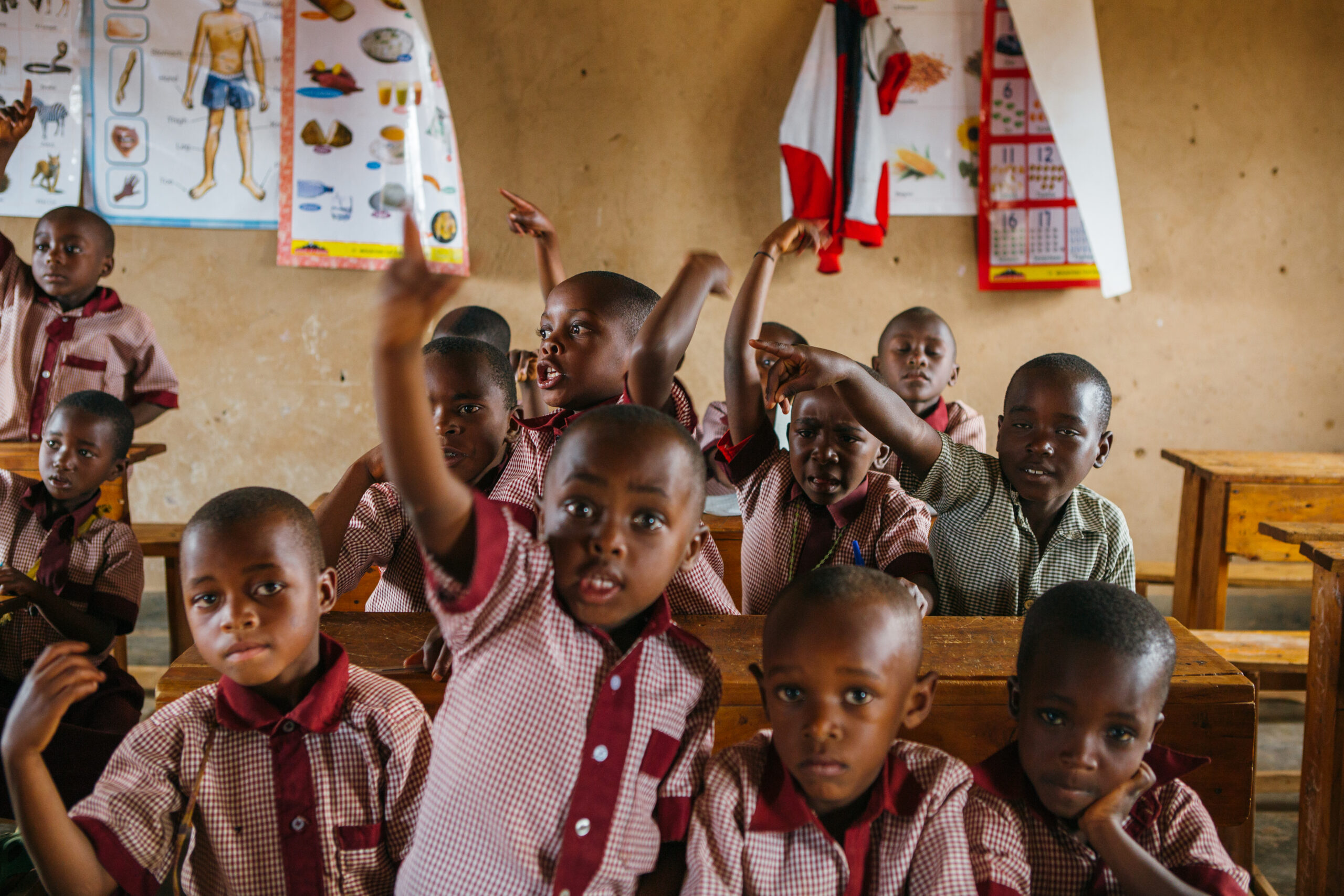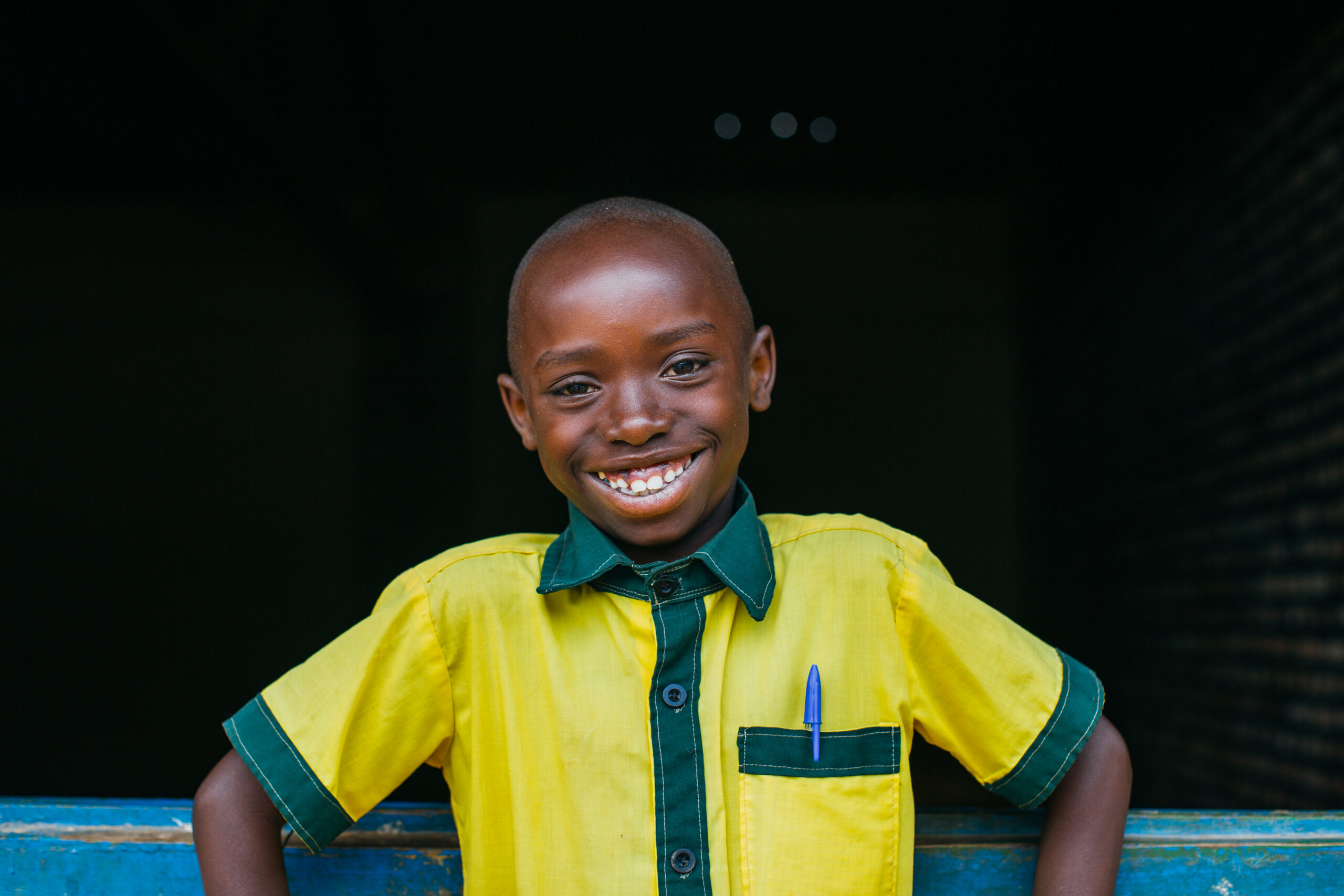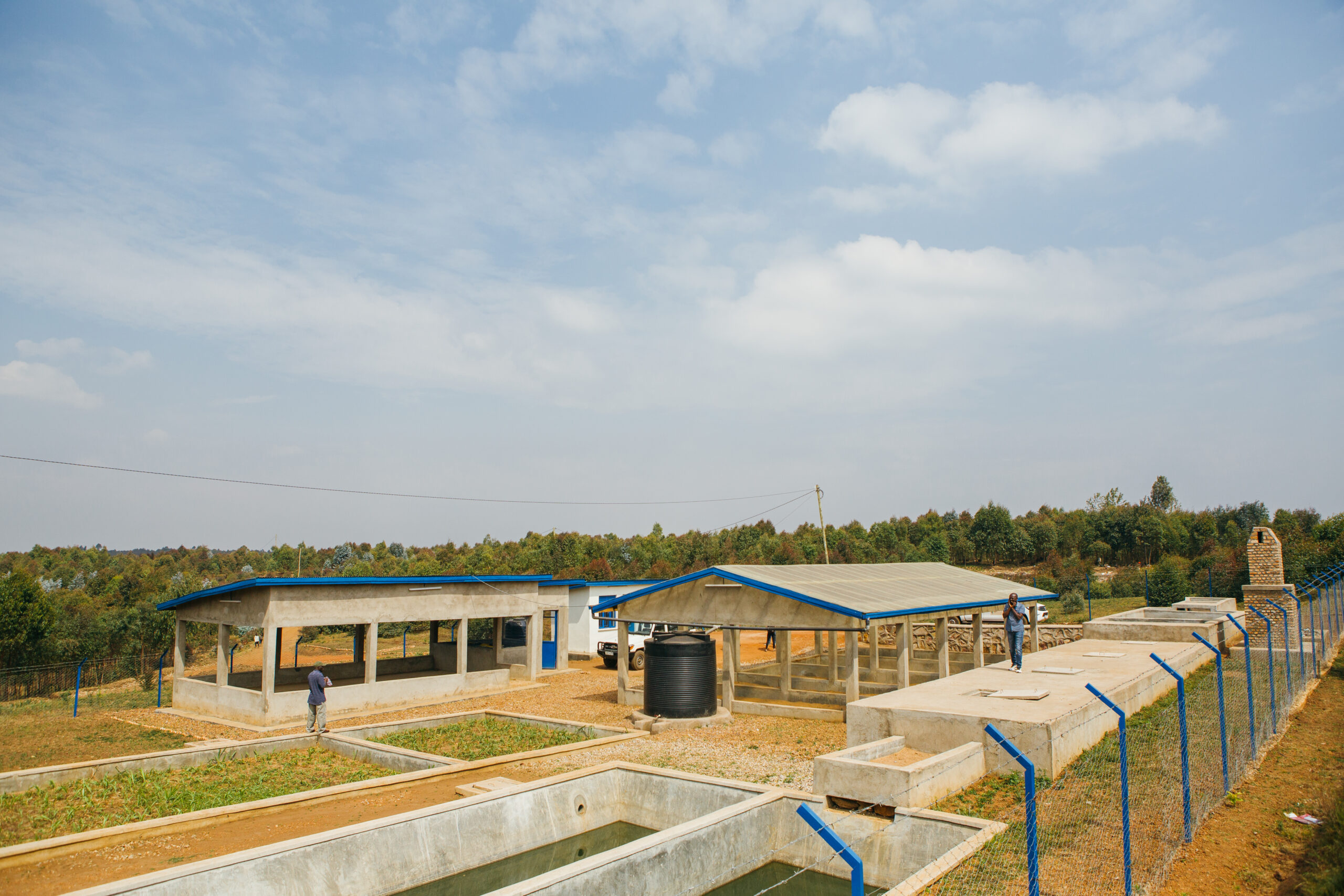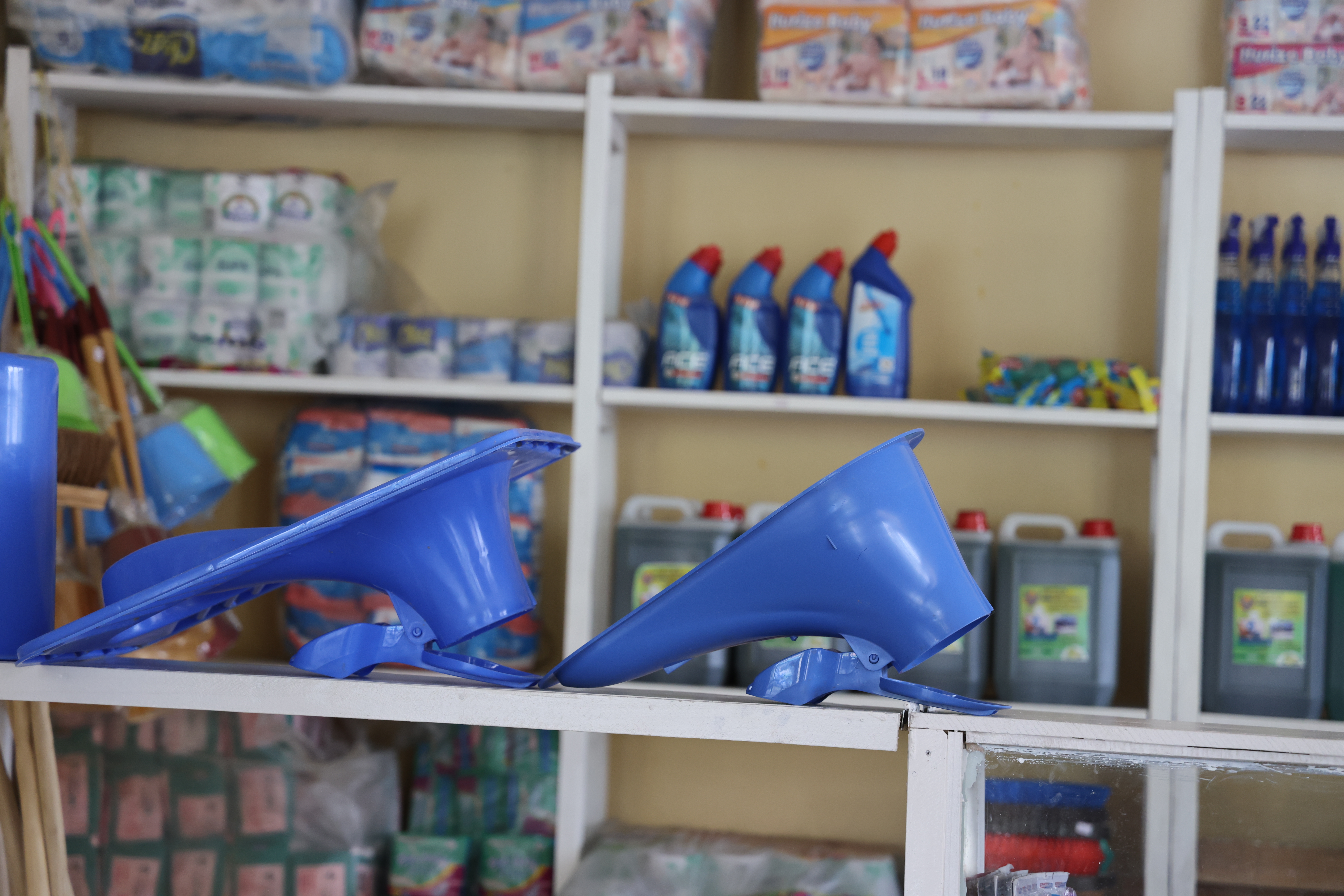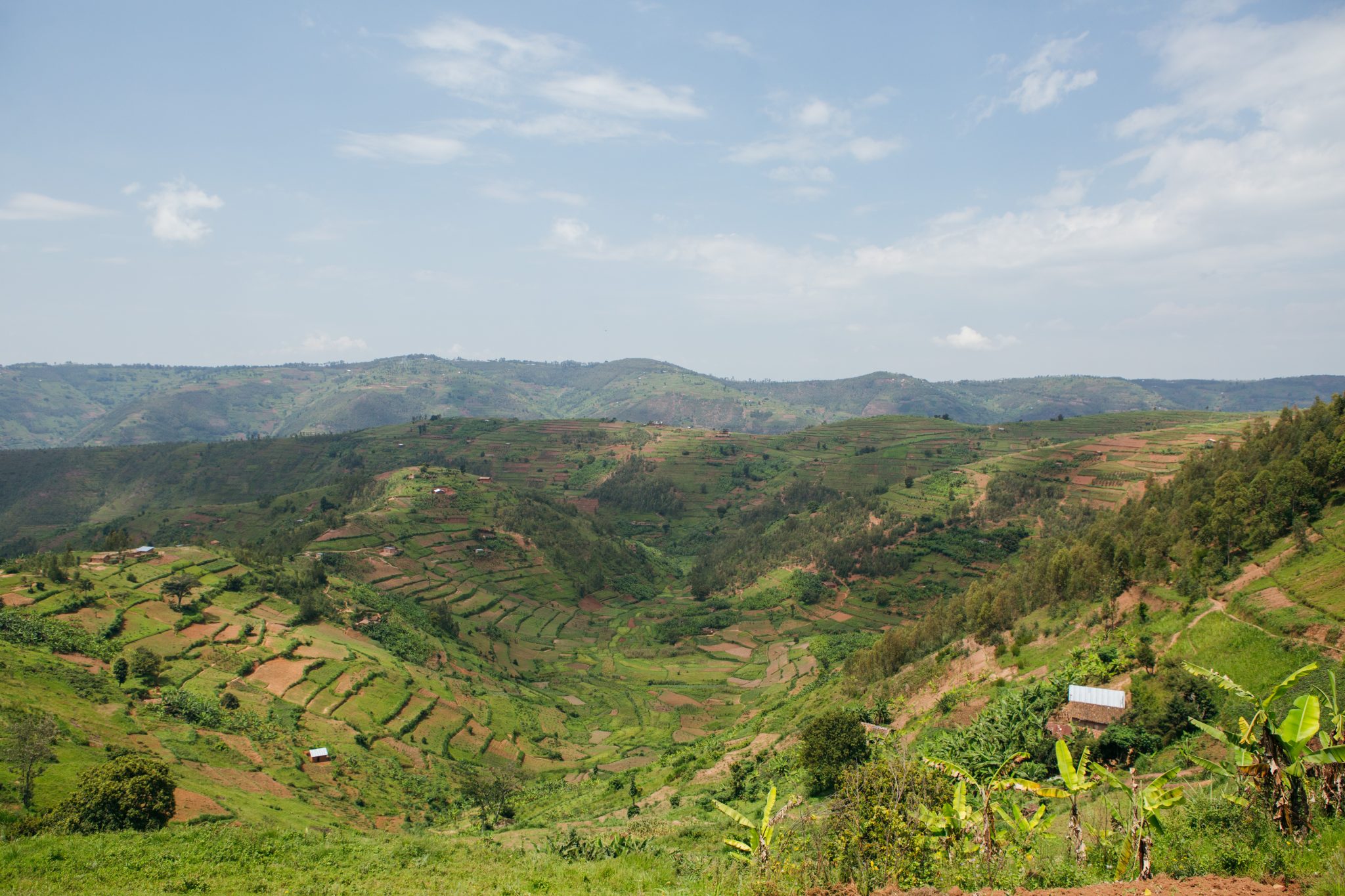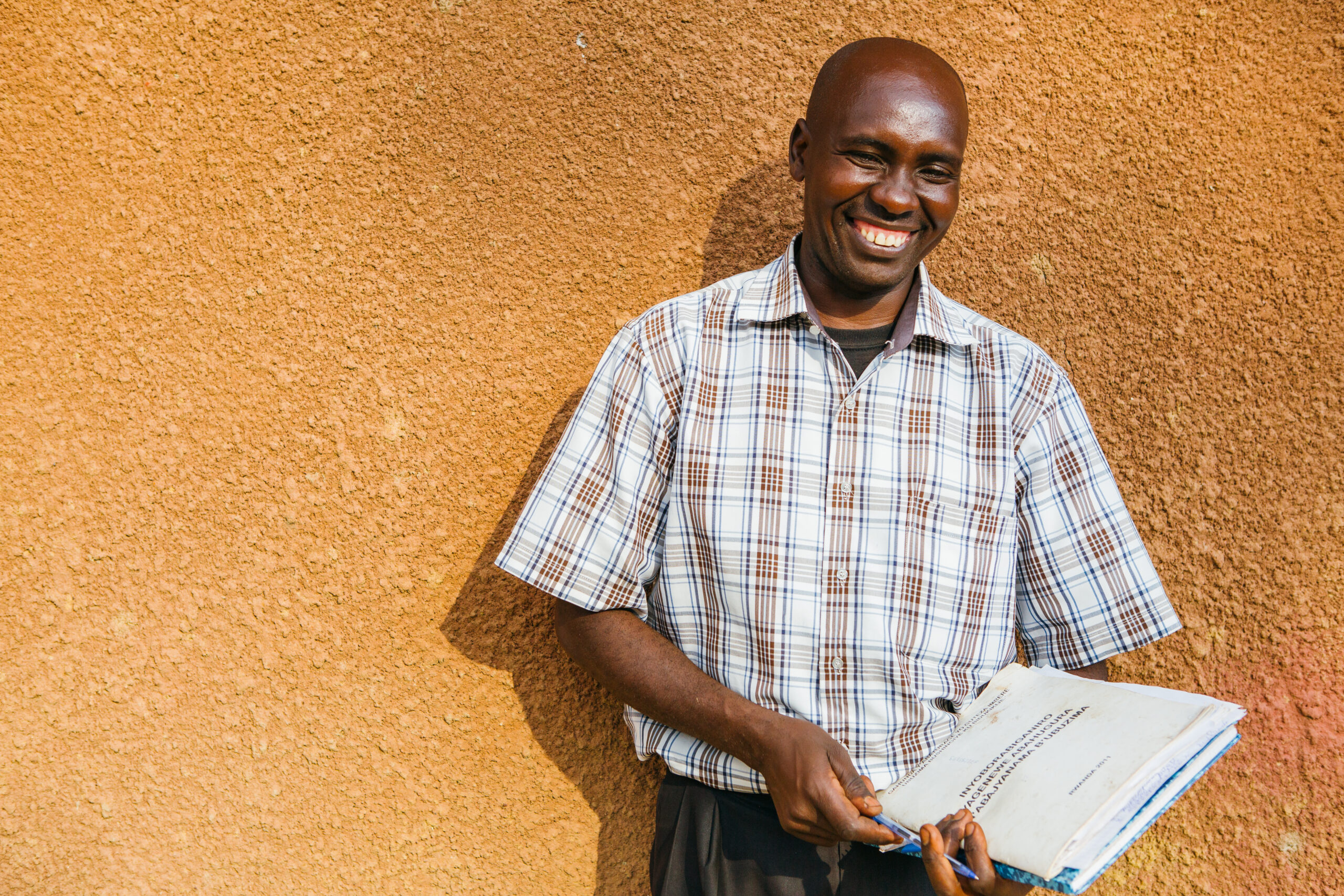Water For People in Rwanda
Through the implementation of the Everyone Forever model in Rulindo, Gicumbi, Kicukiro and Karongi districts, Water For People is increasing access to safe water and creating an environment that supports the sustainability of water services. Through multi-year commitments with district governments, partners are investing financial and technical resources to reach Everyone in the four districts through piped water schemes (gravity and pump-driven).
Water For People is increasing the sustainability of these water systems by training both district staff and water operators in water scheme management and maintenance. This focus on sustainability is the Forever piece of our model.
Summary of impact
For the period between 2008 and 2023
RULINDO DISTRICT
| Area: 567 km2 (219 mi2) | Communities: 494 | ||
|---|---|---|---|
| Population: 360,144 (as of 2022*) | Schools: 94 | ||
| Working with Water For People since: 2010 | Clinics: 33 | ||
| Overview: Rulindo is a rural district in the Northern Province of Rwanda with steep hills and valleys, divided into 17 sectors. Rulindo was the birthplace of Water For People’s Everyone Forever model. The majority of families in the district are farmers. | |||
| Everyone Forever Milestones | |||
| Household: 2025 | Community: 2020 | School and Clinic: 2019 | |
THE RULINDO CHALLENGE PROGRAM
In 2010, the Government of Rwanda, Water For People and Rulindo District committed to implement together an ambitious plan to reach Everyone (every household, every community, every school, and every health care facility) in the district with safe drinking water and sanitation services, and to develop the institutions and local capacity so this lasts Forever. This means ensuring that all the district population spread in 494 villages and all 94 schools and 33 health centers have access to clean and safe drinking water by the end of this program. It also means ensuring that appropriate sanitation facilities exist so that human waste is correctly managed, preventing water contamination and increasing personal hygiene and health. The program served as a trailblazing departure from traditional water provision projects that were implemented sporadically and failed to sustain water services.
The Rulindo Challenge Program is a unique partnership between Water For People, the Government of Rwanda, Rulindo District, and the private sector. This partnership leverages the technical expertise of Water For People, the political power and support of the national government, the capacity and local knowledge of the district, and the management skills of the private sector. After initial success in Rulindo, the Government of Rwanda is in the process of scaling the same approach at the national level under the name of the District Wide Approach.
Program Impact
The Rulindo Challenge Program, initiated in October 2010 with the aim to bring the district to full water coverage, whereby the following key outputs will have been achieved by December 2018:
- The District achieved full water infrastructure coverage in 2019
- 50 piped systems constructed in all 17 sectors serving over 298 700 people, 94 schools, and 33 health care facilities. In the period between October 2019 and September 2020, 21 community water supply extensions were completed in Rulindo District and brought clean water to over 24, 700 people (this number is included in the total number of people reached in Rulindo)
- 95 schools and 2 health care facilities supported by rainwater harvesting systems
- 60 schools supported with sanitation facilities (Eco-San toilets, urinals, shower room, incinerators, and handwashing stations).
- One District Sanitation Centre was established to help communities access hygiene and sanitation services and products.
- Established a unique Vermifiltration Plant to support safe fecal sludge management in the district
- 13 schools and 4 healthcare facilities benefit from improved handwashing facilities
- 494 community health clubs functional
- 919 water users’ committees established and functional
- Established and functional District WASH Board
- Water resources management plan guiding the protection of water sources developed and implemented
- Customer feedback platform was developed and used to monitor service provision and customer satisfaction
- Water safety plan has been developed, and is in process of being implemented
Program Investments
To make all of this happen, the partners to the program heavily invested in the program since 2010. In total US $24,903,393 was invested over 9 years where 84% was invested in water infrastructure development, 8% was invested in program management, 5% was invested in school WASH infrastructure development, and 3% was invested in institutional support and capacity building.
KICUKIRO DISTRICT
| Area: 167 km2 (64 mi2) | Communities: 327 | ||
|---|---|---|---|
| Population: 491,731 (as of 2022*) | Schools: 32 | ||
| Working with Water For People since: 2010 | Clinics: 12 | ||
| Overview: Kicukiro is one of only a few urban districts where Water For People works. It is located next to Rwanda’s capital city of Kigali and is divided into ten sectors. | |||
| Everyone Forever Milestones | |||
| Household: 2023 | Community: 2019 | Schools and Clinic: 2019 | |
THE "REACHING EVERYONE IN KICUKIRO DISTRICT" PROJECT
In line with the Vision 2020 target, Kicukiro District and its partners in water supply, sanitation, and hygiene (WASH) have been working together to provide safe water and adequate sanitation facilities to every community and every public or government-aided school and health care facility. Additionally, building the capacity of various WASH committees responsible for ensuring sustainable access to WASH services for current and future generations.
Program Impact
The program has ensured reliable access to water and sanitation services in Kicukiro and addressed the past rationing of water across the District so that residents can have full access to clean water services, thus improving the health and hygiene conditions of the target communities.
Since 2011, access to clean water (water point level of service) has increased from 33% of the District’s population to 90.7%. In addition, household sanitation grew from 30% of the district’s households in 2011 to 82.4% in 2019. In public schools and healthcare facilities, it increased from 48% in 2011 to 97.9% in 2019.
- More than 123,000 individuals have been reached with safe water since 2009
- 21,697 students and school staff in 17 schools access to improved sanitation
- 145 households were supported with the installation of rainwater harvesting systems
- 25 public schools and one health centre have installed 88 water storage tanks of 10m3 each, benefiting 39,465 students and teachers
Through sanitation marketing and hygiene campaigns, over 1,500 households have upgraded their toilets, and close to 700 households have constructed new toilets. Community mobilization continues to ensure that everyone in the district has a sanitation facility that meets design and hygienic standards. Additional sanitation progress is detailed below.
- Linking households to the sludge emptying service providers has also led to proper waste water disposal for households, including those with low income who can get their toilets emptied at an affordable cost
- Providing technical training for school guards and local technicians responsible for Operation and Maintenance of school WASH facilities
- Quarterly Monitoring and Evaluation of school performance to assess their performance regarding proper operation and maintenance of WASH facilities
- Training on menstrual hygiene management and monitoring performance of the school management and school sanitation and hygiene committees
gicumbi district
| Area: 829 km2 (320 mi2) | Communities: 620 | ||
|---|---|---|---|
| Population: 448,824 (as of 2022*) | Schools: 114 | ||
| Working with Water For People since: 2016 | Clinics: 46 | ||
| Overview: Gicumbi is a rural district located in the Northern Province of Rwanda, divided into 21 sectors. The steep hills and valleys make construction and operation of water systems very resource-intensive. Agriculture is the primary industry in Gicumbi. | |||
| Everyone Forever Milestones | |||
| Household: 2029 | Community: 2023 | Schools and Clinic: 2024 | |
GICUMBI WASH PROGRAM
The Gicumbi WASH Program was initiated to respond to growing water and sanitation challenges in the district. It is designed to bring improved access to safe drinking water and sanitation services to the population of Gicumbi District through a partnership between the district, WASAC, and Water For People.
Through the Gicumbi WASH Program, Water For People co-financed the development of several water supply systems in order to improve access to clean, safe water. The Gicumbi WASH Program has brought clean water to over 224 500 people across the district.
Water For People in Rwanda also supported the construction of a Decentralized Fecal Sludge Treatment (DEFAST) plant. The treatment plant has a capacity to receive 15 cubic meters of fecal sludge per day. The treatment process is an energy- free treatment process that has proven to be highly effective. The final product of the treatment process is organic manure. The plant is currently run by a private company through a public-private partnership model with the district.
Other achievements made include:
- Over 357,000 people reached with clean water in communities and public institutions (Schools and health clinics)
- Over 115 schools and 33 health facilities supplied with piped water and supported with hygiene and sanitation facilities since 2016
- Over 75 water supply systems constructed to bring safer water to communities
- One District Sanitation Centre was completed to ease access to hygiene and sanitation products/ services
- Handwashing facilities built in schools and three health facilities
- Rain water harvesting tanks constructed in schools
- 16 schools supported with sanitation facilities (toilets)
- Developed the District Water Resources Management Plan
- Established the district WASH Board
- Over 32,000 people benefited from various capacity building interventions
karongi district
| Area: 993 km2 (617 mi2) | Communities: 537 | ||
|---|---|---|---|
| Population: 373,869 (as of 2022*) | Schools: 169 (public schools) | ||
| Partnership with Water For People since: 2020 | Clinics: 23 | ||
| Overview: Karongi is a rural district in the lakeside Western Province. The district is characterized by steep hills and valleys, with communities scattered across the high and lowlands: its altitude varies between 1470 and 2200 meters. The district is divided into 537 villages across 88 cells and 13 sectors, with a total population of 366,068. Majority of this population are rural farmers. Karongi is the 4th and newest Water For People Everyone Forever District – after Rulindo, Kicukiro and Gicumbi. | |||
| Everyone Forever Milestones | |||
| Household: 2028 | Community: 2026 | Schools and Clinic: 2026 | |
KARONGI WASH PROGRAM
Water For People started working with the Government and the district of Karongi in 2020, and up to now over 138,000 of people have been reached with safe water in communities, schools and clinics. Since the start of the journey, the levels of service in the district have increased from 57.7% to 69% as per March 2023.
Regarding software activities, a pilot program aimed to help communities improve access to basic sanitation facilities and handwashing with soap using their own financial resources was successfully implemented in partnership with local leaders, and led to the improvement of 160 toilets in the two target pilot villages. This program is now being replicated in other villages of Karongi Districts, and in other target districts. Other software and capacity building activities include supporting the District WASH Board, and workshop on software activities for the district staff which also covered the Community based Environmental Health Promotion Program (CBEHPP) tools.
Note: All population figures are from NISR (National Institute of Statistics of Rwanda (NISR); The Fifth Rwanda Population and Housing Census, Main Indicators Report, February 2023)
Testimonials
The day we got water, everybody [in our community] was overjoyed. That day, we saw change coming to us: No more long walks to get water, no more wasted time, and no more falling sick from using dirty water. It is good to see that we have clean water and that people are using it. Life is better when you have safe water."
ISMAEL YAMBABARIYE
Resident of Karongi District
The distance to fetch water was a two-hour journey, round trip. The water was not clean, but it was the only option we had. Going to fetch the water everyday water meant we lost precious time that should have been dedicated to other activities. But all that changed when we got piped water. The cost of water has dropped ten times [and] we are safe from illnesses. We also dedicate more time to activities that make our lives better. I have seen that clean water brings so many opportunities."
ALPHONSINE MUKANOHERI
Resident of Gicumbi District

